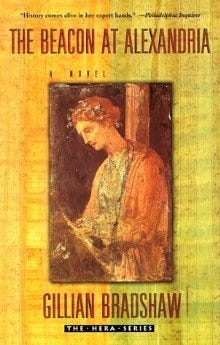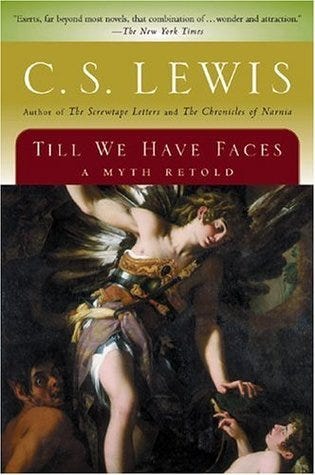When I first reread The Hobbit as an adult, the thing that stuck out to me the most was the voice of the narrator. The Hobbit is marketed as the prelude to Lord of the Rings, but primarily, it's a writeup and expansion of the bedtime stories Tolkien told his children - which only later became a prelude to more, after the publisher and reading public asked for a sequel. This heritage shows: like most British children's stories of its era, it has a visible narrator commenting on the action.
This narrator’s almost a character in himself, from telling us about Hobbits to commenting on Gandalf's desperation to characterizing the king of the eagles to commenting on Bilbo's character growth. The narrator is closest to Bilbo - we see Bilbo's thoughts far more than any other character's - but he's clearly distinct from the Bilbo in the story.
In Lord of the Rings, the narrator's voice isn't as explicit, but it's still definitely present. On the one hand, we have side comments bringing us into the depth of the story, from the offhand mention that Aragorn would never return to Cerin Amroth, to the jump into poetry as Theoden is riding to Gondor. (There are so many more of these references in Silmarillion.) Actual real-world epics had similar references, added by scribes and poets aware of the history, and Tolkien would have been familiar with them. These asides help the story feel like it's been similarly handed down from the depths of the past.
But on the other hand, for most of the story, Lord of the Rings keeps its perspective firmly with the hobbits. Almost whenever there's a hobbit onstage, we see the hobbit's thoughts and no one else's. First we follow Frodo; then we switch to Pippin and Sam as the Fellowship splits, and then later Merry takes his turn (along with more Sam and Pippin). This's a very wise choice. Out of everyone in Middle-Earth, hobbits are the most similar to us (and even more similar to Englishmen of the 1940's when Tolkien was writing.) Their homely origins mean that to a large extent, they're learning about the wonders of Middle-Earth along with us, and wonder at the things where we would wonder. Even though hobbits aren't the most exciting part of the story, they're the most relatable.
(And when we finally do take Aragorn's point of view (at the start of Two Towers), it's after a whole book where we gradually get more and more familiar with him... and it simultaneously helps humanize him to us a bit more as his royal heritage is about to become more relevant.)
We can see this also in non-fantasy books such as The Great Gatsby which sticks with the more relatable Nick as he comes to know the mysterious super-rich Gatsby; or even detective stories where we follow the detective (such as Holmes or Wimsey) who's become familiar to us over previous stories as they enter into a new situation. Just like the hobbits, they serve as bridges to bring us readers into the story.
Choosing the right narrator and point of view can be what defines your book.
For example, historical fiction writer Gillian Bradshaw wrote The Beacon at Alexandria about a young doctor in the late Roman Empire whose life intersects with St. Athanasius of Alexandria. The doctor narrates, in first person. Bradshaw explained that she'd wanted to write a book about Athanasius himself, but she couldn't narrate from his point of view, so she had to find another more relatable narrator. It's a good book as it is, and I can see why Bradshaw wrote it this way. Even when we see Athanasius, we gain more perspective by seeing our protagonist's interactions with him and attempts to better understand him. Children's books about historical figures frequently use this same tactic, making up a young protagonist, both to hold young readers' interest and to better show the historical figure through the filter of that protagonist.
Similarly, if Tolkien had tried to tell Lord of the Rings from Aragorn's perspective, or with a narrator more conscious of who Aragorn was, it would've been much more difficult to gain our sympathy and show us the wonders of Middle-Earth and keep us understanding everything. That'd be the case even for us today, familiar with the fantasy genre, let alone Tolkien’s original audience. More modern writers could stand to learn this lesson.
Yet, you can't just tell the same story about Aragorn just from someone else's perspective. When Bradshaw introduced her new fictional narrator, she correctly made the main arc of the book not about Athanasius but about her and her quest to be a doctor (involving, among other things, disguising herself as a man.) Athanasius becomes only a major supporting character. The best of the children's books I mentioned above also take this approach - I fondly remember Ben and Me, about a young talking mouse who befriends Benjamin Franklin, and has his own plot arcs even as they tie in with Franklin's famous historical deeds. Tolkien approached the same thing from another angle: the hobbits were always the core of his story, even as Aragorn's position and deeds grew more magnificent from draft to draft. As he explained in one letter to a reader, for example, the reason he didn't tell more of Aragorn's journey on the Paths of the Dead was that it wasn't part of the hobbits' story.
In all these examples, perspective and narrators work well together. But, they aren't the same thing.
In The Hobbit, the narrator is much better informed and less flustered than Bilbo is in the story. When Bilbo faces his first challenge - the trolls - he's quite flustered and scared, but our narrator calmly describes the situation in terms Bilbo would have no idea of. Our narrator knows both Hobbit and Dwarven culture, casually references past heroes and describes life in The Wild, occasionally pokes fun at Bilbo when he's quite in earnest, and describes Bilbo's character growth from an outside perspective. The narrator isn't Bilbo, even though he's (almost always) following Bilbo's perspective. Or if he is Bilbo (as Lord of the Rings implies he is), he would have to be a much older and wiser Bilbo who can even poke fun at his younger self.
This difference between the protagonist in the story and as narrator is much more explicit in C. S. Lewis's novel Till We Have Faces. It could be described as a retelling of the myth of Cupid and Psyche - but Lewis has vastly developed the character of the originally-villainous older sister there, to have her not realize till too late that she's disrupting Psyche's happiness with the god Cupid. (I consider it far and away the best of Lewis's works by literary standards) The book is told in first-person narration by the protagonist, Orual, the older sister. The first part, describing her early life with Psyche, Psyche's disappearance, and Orual's later hollow rise to queenship, is narrated as her bitter complaint against the gods. The second part is also narrated by Orual - but much later in her life, after she's seen that the gods are not unjust - looking back over her previous life and bemoaning her own folly.
Of course, many other books have some of this interplay without identifying the narrator as any one character. To stay with Lewis, his Chronicles of Narnia is one of many examples where we see a present narrator commenting on the characters as if the narrator himself were another character.
This sort of active, present, commenting narrator seems to be out of fashion these days. The one exception is first-person narratives, but even they tend to be more told by the protagonist in the moment rather than looking back. (The extreme, perhaps, is Hunger Games where Katniss even tells the story in present tense.) On the one hand, this simplifies stories and makes them easier to understand. On the other hand, it simplifies stories and forecloses some of the rich complications that can come from this interplay.
But even so, books can't help taking a particular perspective, which can bring these questions into play in some regard. I hope that writers can soon start to explore these techniques again.





A good recent example of an objective narrator is the one in Min Jin Lee's "Pachinko." Here is an interview in which Lee discusses the importance of the objective, third-person-omniscient narrator in her own work: https://themillions.com/2023/09/min-jin-lee-still-believes-in-truth.html
Yes, I very much regret the loss of the narrator in modern fiction. And I sometimes get quite bemused comments from some of the readers of my books when the find the voice of the narrator present. The phenomenon of the missing narrator is something I plan to write about myself at some length, but my main thought is that it is a consequence of postmodernism.
The narrator in a story is essentially the voice of objectivity. Much of the drama of a story, the moral drama in particular, lies in the gap between the objective reality of the story world and the subjective experience of the characters. The voice of the narrator anchors the objective side of this contrast. Removing it leaves the subjective experience of the characters to float free. This robs the story of an important source of drama.
Postmodernism, of course, denies the possibility of the objective. All is subjective, and so the experience of the protagonist is the only reality. This, I think, is why we get so many close third-person and first-person narratives. They are purely subjective narratives.
Some hint of the objective may sneak in through the reader's suspicion that they are dealing with an unreliable narrator, which can be used to good effect. But this does not give a work the clear objective stance of a distinct narrative voice. It does more to undermine the authenticity of the protagonist's subjective experience than to establish a true objective baseline for the story.